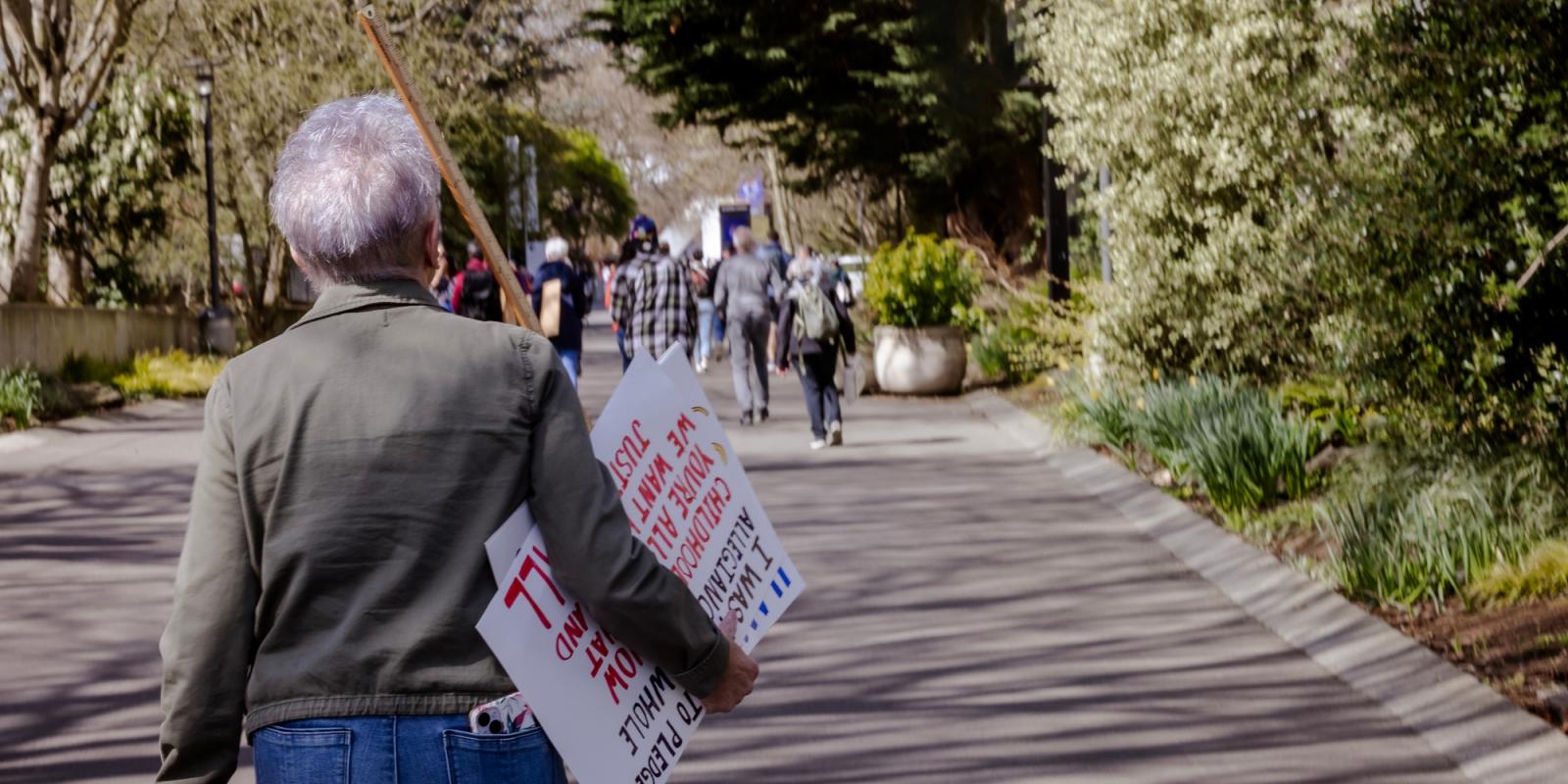Older immigrants are vital to our communities. They are strong pillars of support in multigenerational families and regarded as leaders with wisdom and expertise, but despite their contributions, older immigrants and immigrant communities are under attack. From the notion that Haitian immigrants eat domestic pets to the narrative that undocumented immigrants receive Medicare and Social Security, the President has used a number of factually inaccurate statements to stir anti-immigrant sentiment across the country.
So it should come as no surprise that his second term has ushered in a series of aggressive attacks on immigrant communities. Unfortunately, whether through executive order, recissions of longstanding policy, or weaponization of federal programs and services, these attacks have significant consequences for older adults and those who care for them.
The administration has weaponized federal programs and services—which exist to serve communities across the country—to make life difficult for immigrants. Despite the fact that very few immigrants qualify for federal benefits, the administration has reiterated a false narrative to the contrary. Worse yet is the attempt to use the federal government to make life difficult for immigrants. A striking example is the Social Security Administration’s placement of thousands of migrants in the “death master file,” even though they are alive, seeking to cut off their access to credit cards, bank accounts and other financial services in an effort to prompt them to voluntarily leave the country.
Meanwhile, the budget bill in Congress would take away health insurance—including Medicare—from many of the very few categories of immigrants who are eligible, while punishing states that have chosen to provide coverage with their own dollars. In a further effort to intimidate immigrant communities, the Department of Homeland Security has started an investigation into California’s Cash Assistance Program for Immigrants, a program that provides assistance to older, blind and disabled immigrants, calling for records from Los Angeles County about immigrants lawfully receiving state-based income benefits. The Department’s request could intimidate immigrants into withdrawing from state benefits programs and could even be used for deportation purposes.
‘More than 8.5 million older immigrants call the United States home, and almost one in three direct care workers are immigrants.’
Within days of the inauguration, the administration rescinded a policy that protected certain areas—places of worship, schools, healthcare settings, social services agencies, etc.—from immigration enforcement. This policy, sometimes called the protected areas policy, existed to ensure that all people could access basic services and supports without fear of potential immigration-related consequences. While much of the impact of the recission has understandably been focused on schools and places of worship, settings where older adults congregate are also potentially included. Immigration enforcement in nursing and assisted living facilities, senior centers, and social services agencies would significantly erode the trust that older adults have and impede access to services.
Rescinding the protected areas policy facilitates increased efforts to deport immigrants, another prominent feature in the administration’s immigration policy agenda. Immigrant deportations can tear apart families—including those with older immigrants—and also severely shrink the pool of people providing care to older adults and others, many of whom are immigrants. More than 8.5 million older immigrants call the United States home, and almost one in three direct care workers are immigrants. In a few short months, stories have emerged of older adults, people with disabilities, and others who have been left stranded without care because of the immigration crackdown.
The administration also has taken an axe to refugee admission and services, significantly reducing services for older refugees and others. In 2023, about 3,000 of the refugees who came to United States were ages 55 or older (about 5% of the total refugee admissions that year), and many experience “expedited aging” as a result of the stress, trauma and poor nutrition in their home countries. The administration’s cuts jeopardize healthcare, economic security, and access to basic resettlement services for older refugees and threaten their ability to successfully resettle in the United States.
Significant threats to older adults exist for healthcare, economic security, housing and elder rights. In his first term, the President’s attempt to limit admissibility of immigrants based on the use of benefits—known as the public charge doctrine—not only disproportionately hurt older people but also resulted in steep disenrollment in programs and services and worse health outcomes. Unfortunately, we have not learned from that experience.
There is little doubt that the administration’s aggressive immigration agenda will create and/or worsen those threats and will leave older adults—immigrants and non-immigrants alike—sicker and more financially insecure. Now is the time to advocate for the rights of all people, regardless of their country of origin, to feel safe and economically secure and have access to healthcare and other essential services and programs.
Denny Chan, JD, a managing director for Equity and Advocacy at Justice in Aging, leads its Strategic Initiative on Advancing Equity, and is a member of ASA’s Board of Directors.
Photo credit: Shutterstock/Samantha Witt
Photo caption: Hands Off demonstration protest in Seattle, Wash., April 2025.













